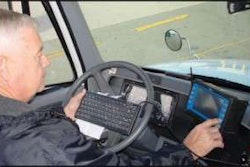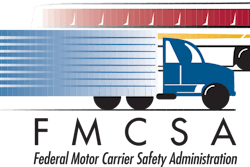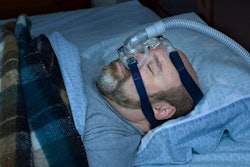On the eve of Senate floor action on the highway bill, the American Trucking Associations on Wednesday, Feb. 8, urged leaders in Congress to seek common ground as they work to pass the long overdue legislation.
“We’ve been operating under a series of extensions for more than 30 months,” said Bill Graves, ATA president and chief executive officer. “It is long past time that we set aside partisan and parochial turf wars and come together on a well-funded multiyear highway bill. By focusing on the similarities in these bills, it is my hope that the House and Senate will be able to bridge their differences in order to pass legislation that will repair our crumbling roads and bridges and advance the cause of highway safety for all motorists, particularly for the trucking industry.”
The House Transportation and Infrastructure Committee on Feb. 3 approved the latest surface transportation bill, H.R. 7, which if eventually passed would represent the first reauthorization since 2005’s SAFETEA-LU act. After debate and consideration of more than 90 amendments, the 5-year $260 billion bill was passed 29-24 and moved to the House floor. The Senate is considering similar legislation covering two years and $109 billion, and the two versions would have to be negotiated before becoming law.
Surviving the House committee bill was further tinkering with the 34-hour restart rule. If the provision makes it through to final legislation, the Federal Motor Carrier Safety Administration would have to conduct a field study of the restart rule by March 31, 2013. Depending on if the study supports the rule, FMCSA may have to revisit the rulemaking. The agency’s rewrite of hours of service is scheduled to take effect in July 2013.
The bill includes several provisions of interest to the trucking industry. A clearinghouse for positive drug and alcohol tests by commercial drivers would be created. Also, directives to study crashworthiness standards for large trucks and standards to expand use of electronic logging devices would be established. The bond for brokers and freight forwarders would be increased to $100,000 from $10,000.
In addition, the bill would ensure that all federal user fees – including more than $8 billion in diesel tax the trucking industry pays annually – go to highway projects.
Another amendment stripped from the bill was a provision that would increase truck weight limits to 97,000 pounds from the current 80,000 pounds.
Graves noted that both bills not only would dedicate billions of dollars for bridge and highway projects, many with a keen eye toward improving freight movements, but they also both contained several critical safety elements.
“Both the House and Senate bills include provisions creating a national clearinghouse for drug and alcohol test results and improvements to commercial driver training and licensing rules to ensure our industry is only hiring the safest, best trained drivers,” Graves said. “These bills both move us toward first-of-their-kind crashworthiness standards for large trucks, as well as give our industry clear direction on the future of electronic logging. These are all great steps forward for trucking, and not coincidentally, they are all part of ATA’s progressive safety agenda. We have been vocal advocates for these causes, and now is the time for Congress to act to move them forward as part of this highway bill.”












